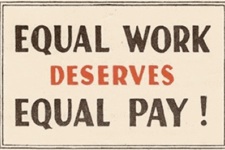by Jodi Koslow Martin
It takes time to fully process any tragedy. When it is the mass shooting that happened in Orlando, we read how others respond. For many of us, reading others’ responses and listening to the news reports becomes all-consuming. It is for me.
How should I, as an individual, respond? How should the Christian university where I work respond? In reading the updates on Facebook, news sites, my twitter feed, and listening to NPR, I am left to believe that I should take up a cause. Or causes. And all are noble and worthy. We should pray. We should favor stronger gun control laws because there are more places to buy a gun in the United States than there are Starbucks in the world. We should end homophobia. We should be appalled by the possibility of the Republican candidate becoming president.
Yet, I am a pragmatic dreamer, if there ever was such a thing. So, I am choosing a cause and I invite you to join me. Let’s choose the cause of higher education.
In colleges and universities, especially those committed to the liberal arts, we see the impact of education. Students become critical thinkers and, at an even more basic level than describing the kind of skills they develop, they are exposed to new ways of understanding people that make a real difference and develop their character. It is in our classrooms, in the residence halls, in the cafeteria, in the diversity office, in chapel, and on the playing field that students experience people different from themselves. Campuses committed to recruiting and retaining students of color, students on the spectrum, students who identify as LGBTQ, students who were born in another country, students of various socio-economic statuses, students who are practicing Christians, students who follow Islam…it is in the spaces where all these students come together around the common goal of pursuing a bright future where the most impactful education takes place. It is in these spaces where students see their peers not as “others” but as friends and as community members. To stop having others feel like “the other,” we have to commit to inclusion and equity not because these words are trendy in higher education or politically correct but because it is how America the Beautiful stays home of the free. And, we may be encouraging students to consider something different than what was taught by their families or past teachers. We may be exposing them to ideas that are not their understanding of truth. Our cause is to walk alongside students as they walk alongside each other in their education and in the pursuit of their dreams — dreams that should live on in thriving communities rather than in a society desensitized to the phrase “mass shooting.”
Those at Pulse in Orlando were in a safe space. In the club, these individuals were free of being judged. Those who lost their lives lose them in utter fear. To add to the devastation, their families now have a record of this fear.
Why do we embrace feminist leadership? Because if we accept the core concepts of feminist leadership — to bring together all voices, to foster collaboration — we are preparing safe spaces. As I reflect upon Orlando and think about my work as a Christian educator, I find that God’s work can be done in memory of those who lost their lives in Orlando. We commit to providing safe spaces for our students to ask questions, to figure out how to engage in inquiry, to not be fearful, and to be their best and most authentic selves.
“We rise and fall and light from dying embers, remembrances that hope and love last longer
And love is love is love is love is love is love is love is love cannot be killed or swept aside.” – Lin-Manuel Miranda








